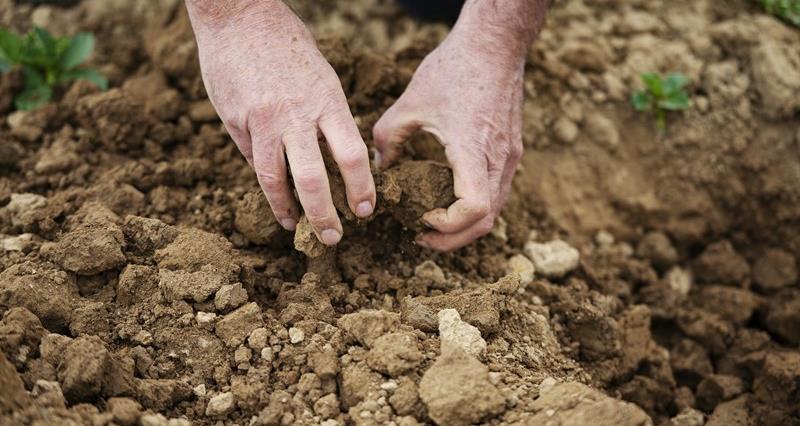Following the release of the NFU’s Foundation of Food soils report last summer, four farmers joined us from England and Wales to discuss eight actions farmers can take to improve their soil health.
Main highlights
The panel of speakers were able to draw upon their varied experience and knowledge to provide valuable advice and guidance to the group.
- Andrew Burgess discussed the complexities between balancing Fenland Peat restoration and food production.
- Erin McNaught spoke about the role of animal agriculture in building soil health.
- David Miller spoke about his ten-year journey into regenerative farming, building organic matter, looking at cultivation methods and experimenting with different systems.
- Phil Jarvis explored the role of increased animal manures to replace artificial fertilisers, where agroforestry has worked for him to help towards his net zero ambitions.
The session was chaired by NFU Environment Forum Chair Richard Bramley, who also discussed farm-led research, the future of SFI/ELMs, food waste and soils policy before moving onto questions from members.
Meet the speakers
Richard Bramley
Regional Environment Lead (NFU North)
He invests in his own professional development and is a Fellow of Institute of Agricultural Management, a qualified agronomist and a CEnv (Chartered Environmentalist).
Richard is also actively involved with university research and education.
Alongside his arable operations, Richard is involved in a diverse range of environmental work on his farm, which began on a largely voluntary basis.
All watercourses are protected with 7m diverse margins and hedgerows are managed sensitively with roughly 12,000 of mixed hedgerow species types have been planted on Richard’s farm and 2,000 mixed trees.
He has approximately 8ha of grassland, which is mainly riverbanks and field corners, with no nutrient inputs, encouraging a diversity of plant species.
A number of bird and bat boxes have been put in place around the farm, and in the past he has installed vole pontoons, kingfisher fishing stakes and a grass snake nest.
Since 2007, Richard has used 'cover cropping' on the farm, which is temporary crop and is used to preserve nutrients and protect soils at key times in the farming calendar, now covering over 50ha on one 200ha farm.
He has also worked in close conjunction with Yorkshire Water to protect water quality and improve the environment.
In addition, Richard grows between 7 and 8 different crop types which adds to the diversity on his farm. Twenty years of bird surveys have provided an important picture of the improvements this work has delivered.
Solar power generated on the farm provides 100% of electricity for Richard’s farmhouse, office and four luxury converted holiday barns and events room. All heating is provided using low energy biomass district heating.
Public engagement is important to Richard and he hosts visits for fellow farmers and other organisations with an interest in the countryside, as well as public speaking on farming and the environment.
Andrew Burgess
NFU Organics Forum chair
He is enthusiastic about environmental farming, especially organic.
Andrew is currently a trustee of the Soil Association and has served full terms on the NFU Horticulture Board, LEAF board, AHDB and British Carrot Growers.
He has just retired from playing rugby for Peterborough, and is now the club president. He still skies and climbs mountains, and loves all outdoor pursuits.
Erin Fflur McNaught
Student & Young Farmer Ambassador (2022-2023), NFU Cymru
She is taking over her family farm in North Wales, whilst also working on a local regenerative dairy farm. She also trains and trials sheepdogs. Through the ambassador programme, she hopes to further develop her understanding and passion for the agricultural industry.
David Miller
Farm Manager and AHDB Strategic Farm host
For 10 years, David has embraced regenerative agriculture practices has done a range of work to improve soil health on farm. In 2022 David won Innovation for Agriculture's Arable Soil Farmer of the Year.




